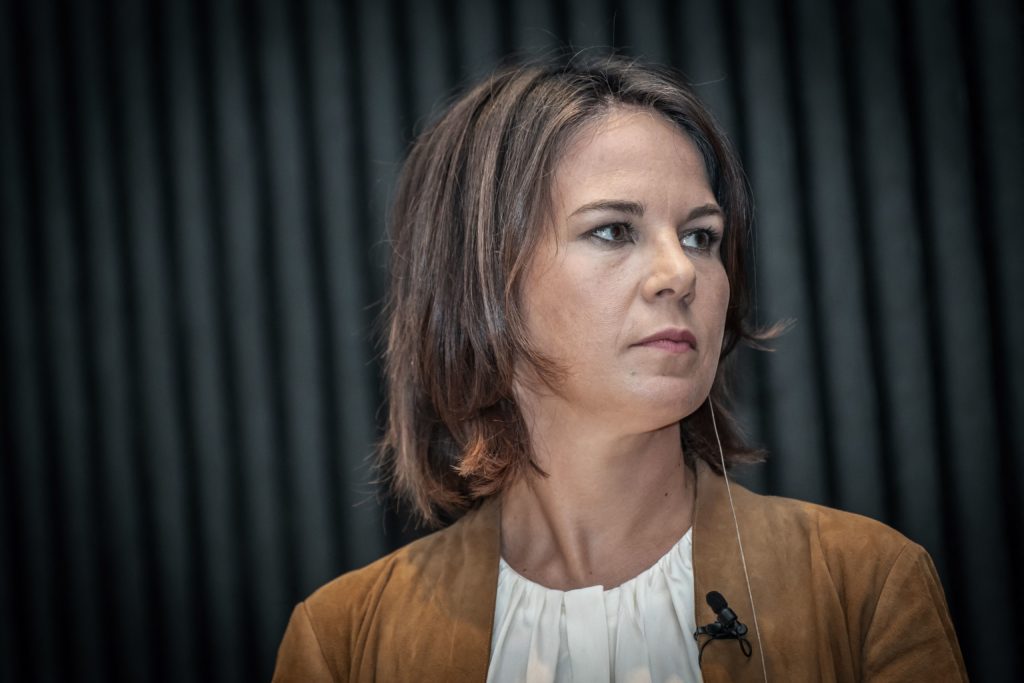VIENNA/BRUSSELS/BERLIN/PARIS — Iran this week privately pressured EU diplomats to abandon sanctions against Tehran over its lethal crackdown on protesters, warning diplomats the move may rupture Europe’s ties to the country.
“If Europe misses taking the nuances of the current situation into consideration, the ramification will be grave and the bilateral relations may not survive it,” warned one letter — sent to a group of EU ambassadors and seen by POLITICO — which details an alternate, Tehran-friendly narrative disconnected from numerous reports coming out of Iran.
EU foreign policy chief Josep Borrell on Wednesday received a similar letter, also seen by POLITICO, from Iranian Foreign Minister Hossein Amirabdollahian.
The EU is expected to soon hit Iran with penalties for its deadly suppression of the protests that have erupted following the death of 22-year-old Mahsa Amini, who died while in the custody of Iran’s morality police. Iranian police have killed dozens of protesters and wounded or arrested thousands more, according to human rights groups.
The letter sent to EU ambassadors implies that punishing Iran for the violence will “bear a detrimental impact on Iran-Europe relations,” which are already “at their most fragile at the moment.” It also deplores the “current Iran-bashing trends in Europe” and accuses “war-mongering factions in the United States” of “stoking the fire of conflict.”
Several European diplomats confirmed they had received the message from the Iranian ambassador. Borrell’s office declined to formally comment. Iran was not immediately available for additional comment.
The pressure campaign comes at a turbulent moment for Iran. The recent uprising has only surged as it enters its fourth week, defying authorities and security services. Protesters have expanded their demands, calling for the ouster of Iran’s Islamic Republic.
The U.S. has responded to the outburst with fresh sanctions targeting Iran’s morality police. The EU is now looking to follow suit, aiming to adopt a package of penalties at a foreign affairs ministers’ meeting on Monday.
EU capitals have vowed to move ahead regardless of any Iranian pressure.
One senior European diplomat told POLITICO that Iran’s efforts were a “lost cause” since there is “very strong unity and momentum.”
It was a message German Foreign Minister Annalena Baerbock stressed last weekend.
“We will make sure that the EU imposes entry bans on those responsible for these brutal repressions and freezes their assets in the EU,” she told German weekly Bild am Sonntag on Sunday. “Those who beat up women and girls in the streets, abduct people who want nothing more than to live freely, arbitrarily arrest them, sentence them to death, are on the wrong side of history.”
“We will make sure that the EU imposes entry bans on those responsible for these brutal repressions,” said German Foreign Minister Annalena Baerbock | Emil Helms/Ritzau Scanpix/AFP via Getty Images
French Foreign Minister Catherine Colonna told French lawmakers she did not see “any difficulties ahead” for the EU to adopt sanctions on Monday, “despite the pressure exerted by Iran to cast our positions as interference.”
The U.S. also chimed in to support the EU’s latest efforts.
“Threatening other governments for expressing support for peaceful protesters will not help [the Iranians] in the eyes of the global community or, more importantly, with their own rightfully dissatisfied people,” a State Department spokesperson said in a statement.
The letter to EU ambassadors came from Iranian Ambassador to the EU Gholamhossein Dehghani.
In his missive, Dehghani pushes the Iranian authorities’ claims that an official autopsy found Amini’s death “was not the result of cerebral trauma or any other physical harm to the body.” Amini’s family say her death came from brutal blows to the head and body.
Still, Dehghani urged EU officials to consider Tehran’s side of the story.
“We expect Europe to assess the bilateral relations with the same sensitivity as we do,” he writes. “In this regard, heeding the official reports by the Government of Iran plays a key role.”
He also attempted to reframe the ongoing wave of protests, claiming Iranian police have been “obligated to deter and detain all forms and manifestations of hooliganism on the streets of different cities in Iran.”
He adds: “To aggrandize the ‘violence’ by the police will distort judgment and misguide policy-makers in the West.”
Dehghani linked the EU’s latest moves to the EU-brokered talks aimed at reviving the 2015 Iran nuclear deal, officially called Joint Comprehensive Plan of Action or JCPOA.
“At this critical juncture, when there is a real shot at the revival of the JCPOA post-US midterms, this is all the more critical,” he writes. The Iran nuclear talks are currently on ice ahead of the upcoming U.S. elections in November. The original deal lifted international sanctions on Iran in exchange for strict restrictions on its nuclear program. But the accord has been on life support since former U.S. President Donald Trump left the agreement in 2018.
The letter sent to Borrell, written by Iranian Foreign Minister Hossein Amirabdollahian, echoed many of the same points. It repeats the claims that Iranian authorities bear no responsibility for Amini’s death and argues the protesters have shown “a pattern of violence and terror.”
The letter sent to Borrell was written by Iranian Foreign Minister Hossein Amirabdollahian | Atta Kenare/AFP via Getty Images
It adds: “21 police officers [have] been martyred and tens of them injured by daggers and weapons.”
It does not, however, mention in this context the Iran nuclear negotiations.
“We and Europe might mildly or strongly agree or disagree on many issues, but this is always a two-way street, as in the case of restoring to measures of restrictive nature,” Amirabdollahian writes. “Therefore, I strongly discourage both sides from entering into this avenue.”
Nahal Toosi contributed reporting from Washington, D.C.




